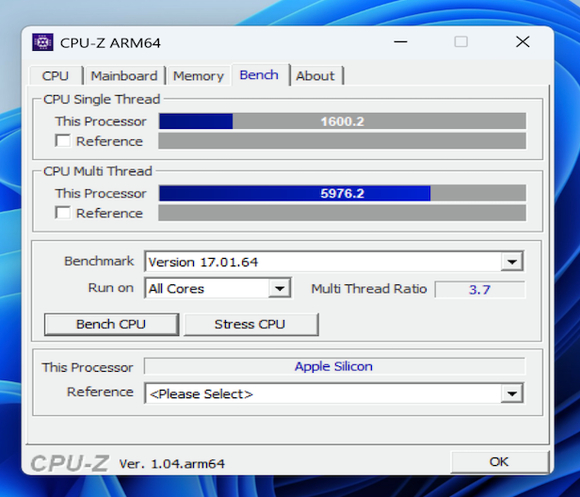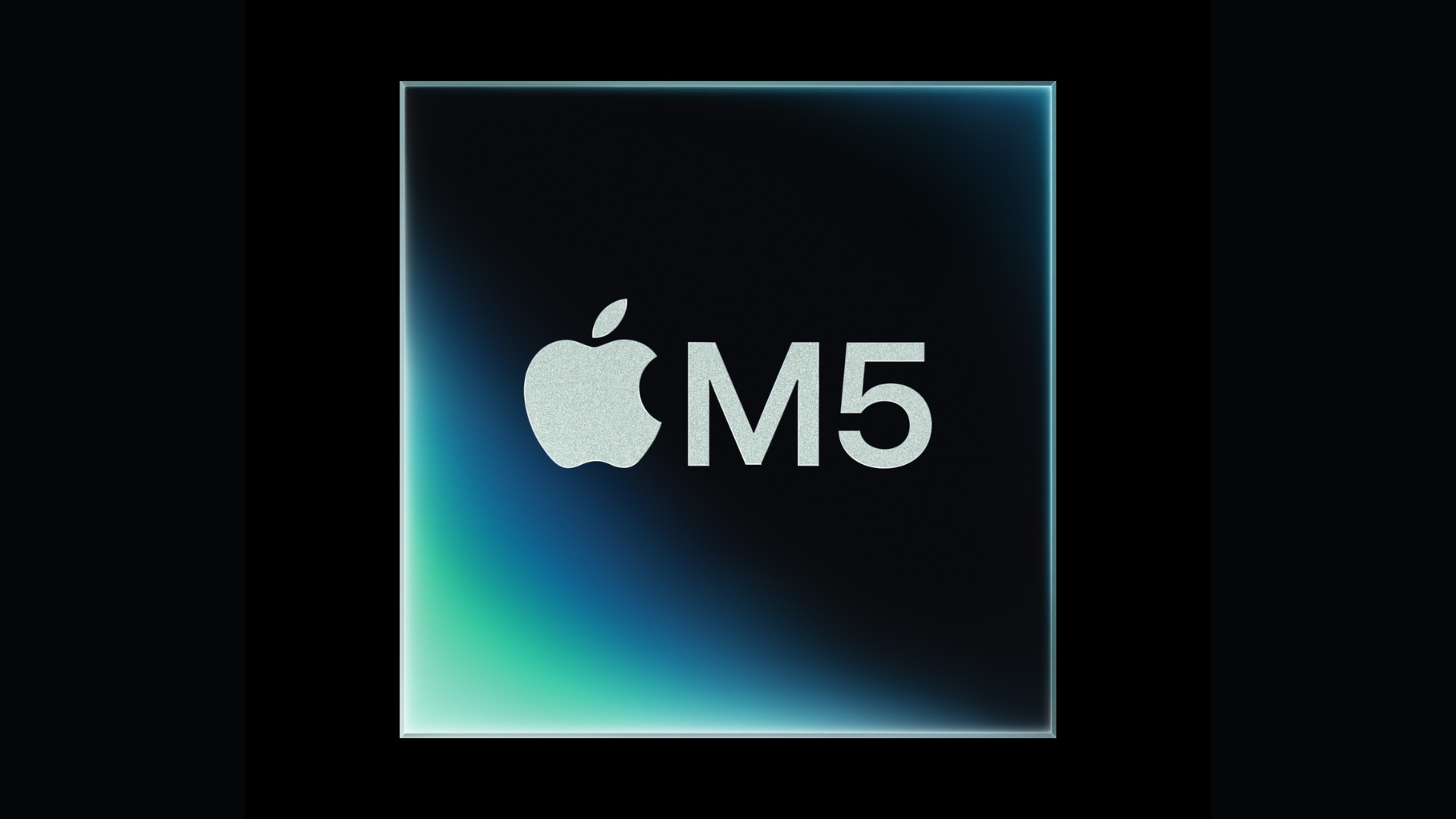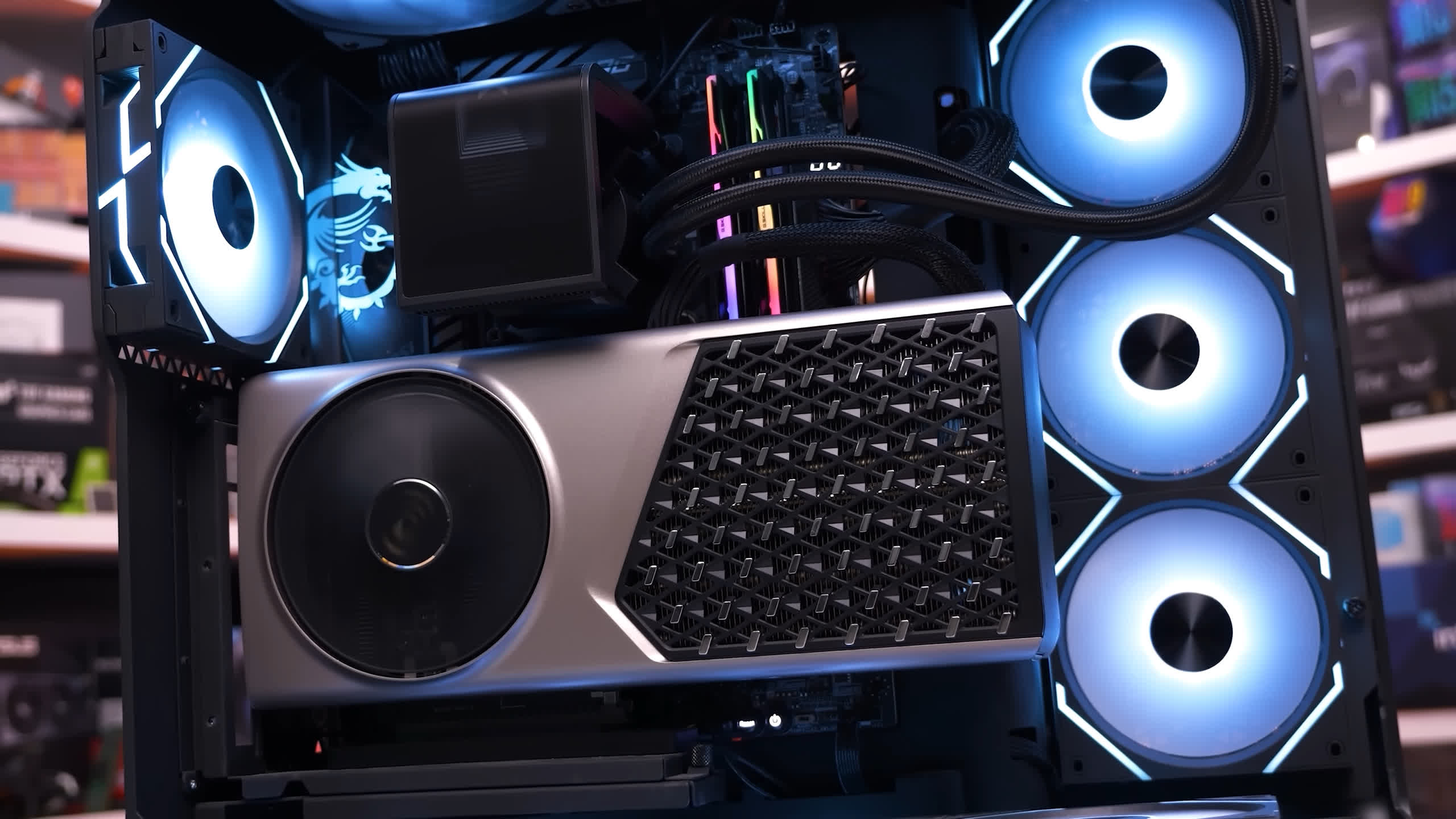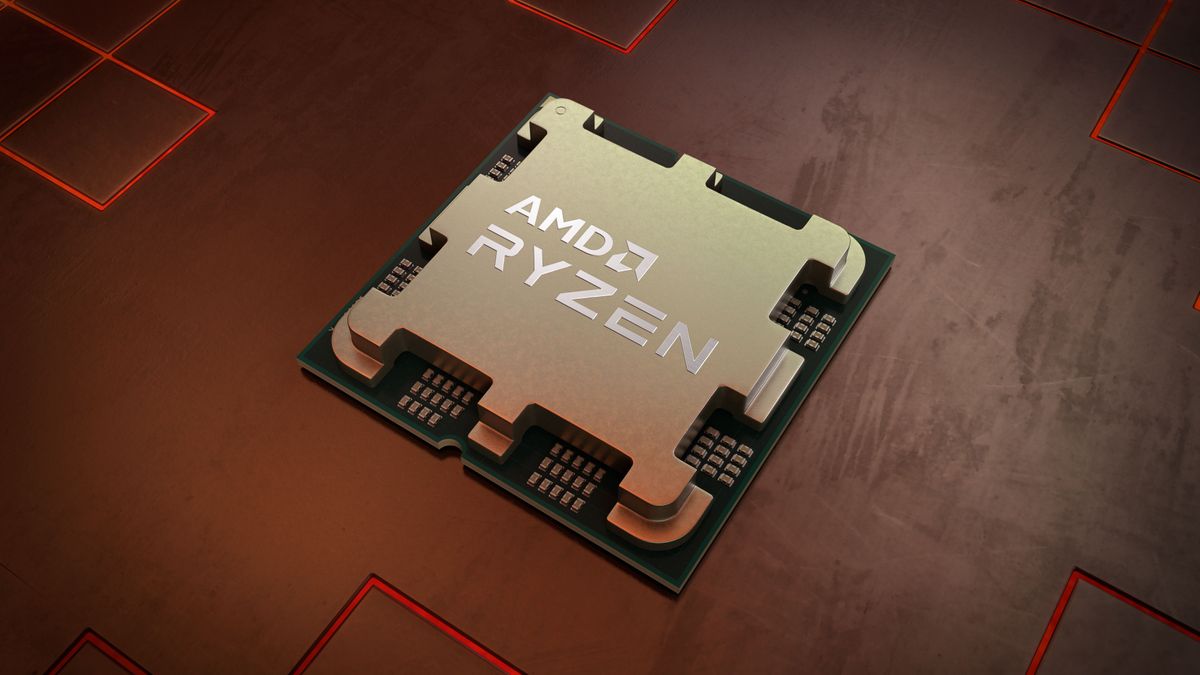Apple's processors are notorious for their high performance when running in their native environments: macOS and iOS. However, an experiment conducted by NPacific, a Chinese enthusiast (via HXL), shows that Apple's latest M5 processor can destroy high-end CPUs from AMD and Intel while running Windows 11 in virtualization mode. There is a catch, though: So far, the enthusiast has only benchmarked the M5 processor in CPU-Z, a synthetic benchmark.
Staying true to Apple's goal of developing processors with the maximum possible single-thread performance, the M5 system-on-a-chip (SoC) scores 1600.2 points in single-thread CPU-Z version 1.04.arm64 benchmark, assuming the results from an unknown enthusiast are to be believed. This is the highest single-thread score ever registered on a non-overclocked CPU in the CPU-Z database. To put it into context, Intel's Core i9-14900KS scores 952 points in this benchmark, whereas AMD's Ryzen 9 9950X3D achieves 867 points.

As it turns out, a custom Armv9 core from Apple running at up to 4.60 GHz can outstrip a Raptor Cove core by a whopping 68% and a Zen 5 core by astounding 84.5%, at least in this one benchmark. We do not know if Intel's and AMD's cores can actually achieve their 6.20 GHz and 5.70 GHz maximum boost clocks in CPU-Z, but the current result is fantastic for Apple.
When it comes to multi-thread performance in CPU-Z, the results are more of a mixed bag for Apple's M5. The CPU has 10 cores without simultaneous multi-threading, so the benchmark runs 10 threads on the processor, which scores 5976.2 points. Since AMD and Intel do not have high-performance client CPUs with 10 cores, it makes sense to compare Apple's M5 to CPUs running 8, 12, 16, or 20 threads.
Apple's M5 outperforms all CPUs running 8 threads, and its closest rival — Intel's Core i7-12700K — scored 5533 points. However, with its 12 threads, the CPU finds itself near AMD's eight-core Ryzen 9-7900X (5935 points) and well behind current-generation Ryzen 9900X or previous-generation Core i7-12700K (7550 points). With 16 threads, Apple's M5 result looks rather pale, on the level of Intel's Core i5-13450HX (5978 points), andwell behind AMD's Ryzen 9 9950X3D.
Since there is no CPU-Z compatible with macOS or iOS, we can only wonder whether the rather weak result of Apple's M5 is conditioned by its limited core count, lack of simultaneous multi-threading, or Windows 11's scheduler that does not know how to properly work with Apple Silicon CPUs in multi-threaded environments.
Keeping in mind that we are dealing with a synthetic benchmark run in virtualization mode, we can't really draw any solid conclusions from these results, except to note that Apple optimizes its SoCs to demonstrate maximum single-thread performance for higher power efficiency. That's not exactly anything new, but these results pique our interest, and we'd love to see the M5 tested in other benchmarks in Windows.

Follow Tom's Hardware on Google News, or add us as a preferred source, to get our latest news, analysis, & reviews in your feeds.

 1 month ago
34
1 month ago
34









 English (US) ·
English (US) ·